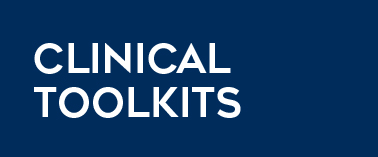These easy-to-use tools will help you to implement guidelines-based and best practice care, and address common clinical issues at your facility.


Shared Decision-Making
Shared Decision-Making is an essential part of the clinician-patient relationship, improving accuracy of the patient's risk perception and clinician satisfaction.
QI Toolkit
Implement quality patient care at your facility with checklists, reminders, and other tools to address common quality improvement issues.
QI Communications Kit
Implement resources to showcase your hospital's commitment to quality, to staff, and to the community.
Advance Care Planning Toolkit
Implement tools to help the cardiovascular care team consistently integrate advance care planning in the outpatient setting for all patients.
PCI Bleeding Risk Checklist
Implement tools to decrease the risk of bleeding complications after percutaneous coronary procedures.
D2B Strategic Tools
Implement tools for improving organizational culture, reducing D2B times using specific evidence-based strategies, and data monitoring and feedback.
H2H Toolkits
Implement tools designed to help facilities improve care transitions from hospital to "home" and reduce risk of federal penalties associated with high readmission rates.
Surviving MI Toolkit
Implement tools to lower 30-day risk stratified mortality rates and improve organizational culture for patients hospitalized with AMI.
Patient Navigator Toolkit
Implement tools to avoid hospital readmissions by implementing evidence-based quality improvement strategies.
QI Tools for Outpatient Practices
Practices participating in the PINNACLE Registry can implement these tools to improve quality in their facilities, in the areas of early follow up, patient education, communication and stroke prevention.
Preventing Preventable Strokes Toolkit
The Preventing Preventable Strokes Toolkit provides evidence-based quality improvement tools intended to help clinicians identify barriers related to AF treatment and implement best practice strategies for preventing preventable strokes.
Professional Data Portfolio App
The app also offers the Education Credit Tracker system, centralizing a participant's education requirement information and provides a platform to automate the information and see them regularly over the course of their credit cycle.
Systems of Care Toolkit
This toolkit provides resources to assist in the development and improvement of multi-organizational regional time sensitive care coalitions.
American College of Cardiology: 2400 N St. NW, Washington DC 20006